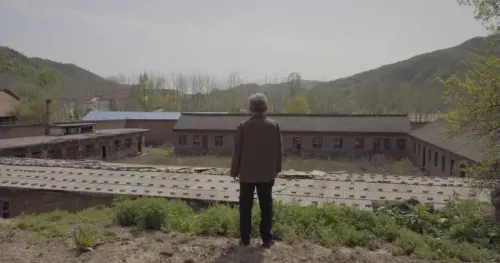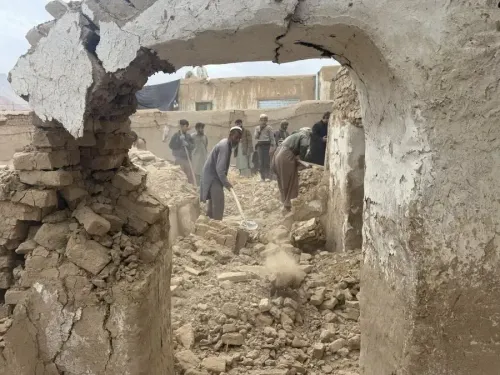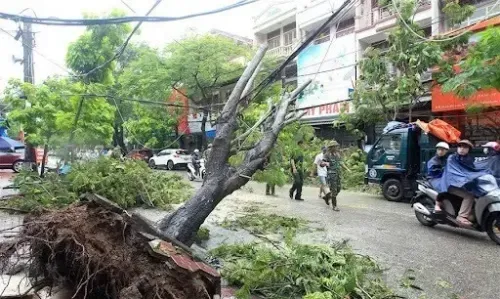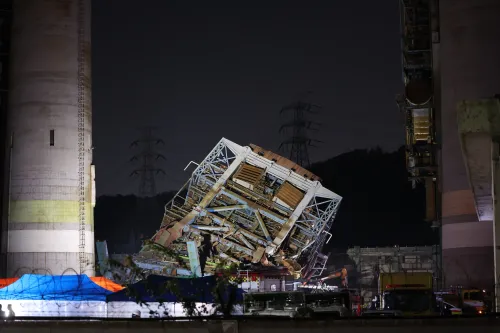What is the Current Flood Death Toll in Nigeria?
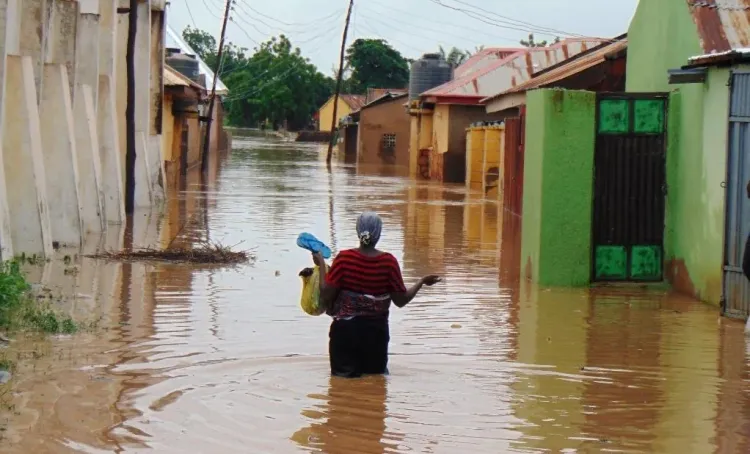
Synopsis
Key Takeaways
- The death toll from the floods in Niger State has risen to 151.
- Rescue operations are ongoing with local volunteers assisting.
- Heavy rainfall has caused widespread damage in the Mokwa area.
- The Nigerian Meteorological Agency has warned of more rain.
- Urgent investments in infrastructure are needed to prevent future disasters.
Abuja, May 31 (NationPress) The number of fatalities resulting from catastrophic flooding caused by intense precipitation in Nigeria's central state of Niger has risen to a minimum of 151, as reported by local authorities on Saturday.
Ibrahim Hussaini, spokesperson for the Niger State Emergency Management Agency, informed Xinhua via phone that over 50 additional bodies were retrieved on Saturday in the Mokwa region, the site of the disaster.
Hussaini noted that 11 injured individuals were rescued and transported to a nearby medical facility.
"Currently, 318 people have been affected, with at least 503 households also suffering losses," he stated.
He further mentioned that the search for bodies continues, with local divers and volunteers aiding the recovery efforts.
Intense rainfall late Wednesday night caused devastation throughout Mokwa, inundating and sweeping away numerous homes, some occupied by residents, Hussaini disclosed to reporters on Thursday.
Earlier this week, the Nigerian Meteorological Agency issued warnings of thunderstorms and heavy rain in the central region, including Niger. Further rainfall is anticipated in the next 24 hours, with localized downpours expected in the southern areas.
The National Emergency Management Agency (NEMA) announced on Tuesday that it had amplified efforts to alleviate the effects of seasonal flooding across the nation, according to Xinhua.
During a national awareness campaign on flood preparedness, Zubaida Umar, NEMA's director general, urged all governmental levels to invest in drainage systems, dams, and flood-resistant infrastructure in riverine zones.
The flooding incident in the central town of Mokwa in Niger State took place late Wednesday and persisted into Thursday morning. Days later, rescuers continued to sift through mud and debris in search of victims.
Nigeria faces recurring flooding during the rainy season, which commenced in April.
In 2022, the nation experienced its most severe flooding in over a decade, resulting in more than 600 deaths, displacing roughly 1.4 million individuals and damaging 440,000 hectares (around 1.09 million acres) of agricultural land.

